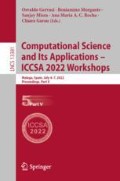Abstract
AR games such as Pokemon Go, Jurassic World Alive and other games encourage us to venture out in the real open world to also see the beauty of it. However, tourism has come almost to a virtual stop during the first year of the COVID-19 pandemic and recovery is slow. We present a tile-based experience-sharing PixoMap, which incorporates some aspects of smart tourism. For user requirements gathering, we first compare factors that make popular games such as Pokemon Go, Minecraft, and the Sims popular. Findings indicate that people enjoy collecting objects, such as monsters or cards, freedom and creativity, escape and sometimes nostalgia. Our PixoMap game allows players to virtually browse an area in the map, and choose a tile. Each tile contains memories (Memors)/experiences/stories. Users can read others’ experiences and share their own experiences, play a minigame to earn in-game currency, to change his/her 2D avatar or change the tile’s color or optionally, to own the tile. Alpha user feedback confirms and refines our design. Heuristic evaluation and user experience feedback at the end of the study, are positive and encouraging.
Access this chapter
Tax calculation will be finalised at checkout
Purchases are for personal use only
References
Balakrishnan, J., Griffiths, M.: Perceived addictiveness of smartphone games: a content analysis of game reviews by players. Int. J. Ment. Health Addict. 17(4), 922–934 (2018). https://doi.org/10.1007/s11469-018-9897-5. Accessed 13 July 2021
Bediou, B., Adams, D., Mayer, R., Tipton, E., Green, C., Bavelier, D.: Meta-analysis of action video game impact on perceptual, attentional, and cognitive skills. Psychol. Bull. 144(1), 77–110 (2018). https://doi.org/10.1037/bul0000130
Cairns, P., Power, C., Barlet, M., Haynes, G., Kaufman, C., Beeston, J.: Enabled players: the value of accessible digital games. Games Cult. 16(2), 262–282 (2019). https://doi.org/10.1177/1555412019893877. Accessed 13 July 2021
Davis, F.D.: Perceived usefulness, perceived ease of use, and user acceptance of information technology. MIS Q. 13(3), 319–340 (1989)
Edmonds, R., Smith, S.: From playing to designing: enhancing educational experiences with location-based mobile learning games. Australas. J. Educ. Technol. 33(6), 41–53 (2017). https://doi.org/10.14742/ajet.3583. Accessed 13 July 2021
Lee, C.S., Hughes, J.H.: Refocusing on cognitive load design through a meta-analysis on learnability, goal-based intentions and extensibility towards personalized cognitive-social-affective engagement among seniors. In: Frontiers in Artificial Intelligence and Applications, Advancing Technology Industrialization Through Intelligent Software Methodologies, Tools and Techniques, vol. 318, pp. 456–469, IOS (2019)
Lee, C.S., Ling, Y.L.: Comparing effects of brain-training and role-playing games on problem-solving speed. In: Workshop on Curating Examples of the Use of Analogies in STEAM, International Conference on Computers in Education, Vietnam, 23–27 November 2020, vol. 2, pp. 607–616 (2020)
Lee, C.S., Ooi, E.H.: Design to encourage reframing and transformations through digital storytelling and analogical thinking. Int. J. Adv. Trends Comput. Sci. Eng. 9(13), 64–70 (2020)
Lee, C. S., Wong, K. D.: Developing community-based engagement in smart cities: A design-computational thinking approach. In: IEEE International Conference on Industrial Engineering and Engineering Management, pp. 832–836. Singapore (2017)
Nielsen, J.:. Designing web usability: The practice of simplicity. Indianapolis. In: New Riders Publishing (2000)
Nielsen, J.: 10 Usability Heuristics for User Interface Design (1994, 2020). https://www.nngroup.com/articles/ten-usability-heuristics
Reddit Pixel Art. https://www.reddit.com/r/place/comments/639htx
Sala, G., Tatlidil, K., Gobet, F.: Video game training does not enhance cognitive ability: a comprehensive meta-analytic investigation. Psychol. Bull. 144(2), 111–139 (2018). https://doi.org/10.1037/bul0000139
Soukup, C.: Pokémon Go as a cognitive map: simplifying and focusing movement in postmodern urban spaces. Explor. Media Ecol. 19(2), 179–194 (2020). https://doi.org/10.1386/eme_00034_1. Accessed 13 July 2021
Schrepp, M., Hinderks, A., Thomaschewski, J.: Design and evaluation of a short version of the user experience questionnaire (UEQ-S). Int. J. Interact. Multimed. Artif. Intell. 4(6), 103–108 (2017)
Toril, P., Reales, J., Ballesteros, S.: Video game training enhances cognition of older adults: a meta-analytic study. Psychol. Aging 29(3), 706–716 (2014). https://doi.org/10.1037/a0037507
Wagner-Greene, V.R., Wotring, A.J., Castor, T., Kruger, J., Mortemore, S., Dake, J.A.: Pokémon GO: healthy or harmful? Am. J. Public Health 107(1), 35–36 (2017). https://doi.org/10.2105/AJPH.2016.303548
Wang, S., Hsieh, C.: Ubiquitous Pokémon Go: human–environment relationships and the location-based augmented reality game. Environ. Behav. 52(7), 695–725 (2018). https://doi.org/10.1177/0013916518817878. Accessed 13 July 2021
Acknowledgement
The paper is extended from a Sunway University capstone project, titled Fun Games using SQL, meant mainly for smart tourism. The first author is currently working in the industry. Additional elaboration and additional analyses/links to e-health, cognitive load, Reddit and e-commerce research by the second author, indicate the potential of repurposing systems, across SDGs and possibly, the metaverse in the future; continuing from and funded by the second author’s past Fulbright Visiting Scholar Fellowship on A Framework for Interactive Media in Emerging Technologies.
Author information
Authors and Affiliations
Corresponding author
Editor information
Editors and Affiliations
Rights and permissions
Copyright information
© 2022 The Author(s), under exclusive license to Springer Nature Switzerland AG
About this paper
Cite this paper
Lim, CY., Lee, CS. (2022). Game-Based e-Tourism-e-Health Using SQL. In: Gervasi, O., Murgante, B., Misra, S., Rocha, A.M.A.C., Garau, C. (eds) Computational Science and Its Applications – ICCSA 2022 Workshops. ICCSA 2022. Lecture Notes in Computer Science, vol 13381. Springer, Cham. https://doi.org/10.1007/978-3-031-10548-7_17
Download citation
DOI: https://doi.org/10.1007/978-3-031-10548-7_17
Published:
Publisher Name: Springer, Cham
Print ISBN: 978-3-031-10547-0
Online ISBN: 978-3-031-10548-7
eBook Packages: Computer ScienceComputer Science (R0)

